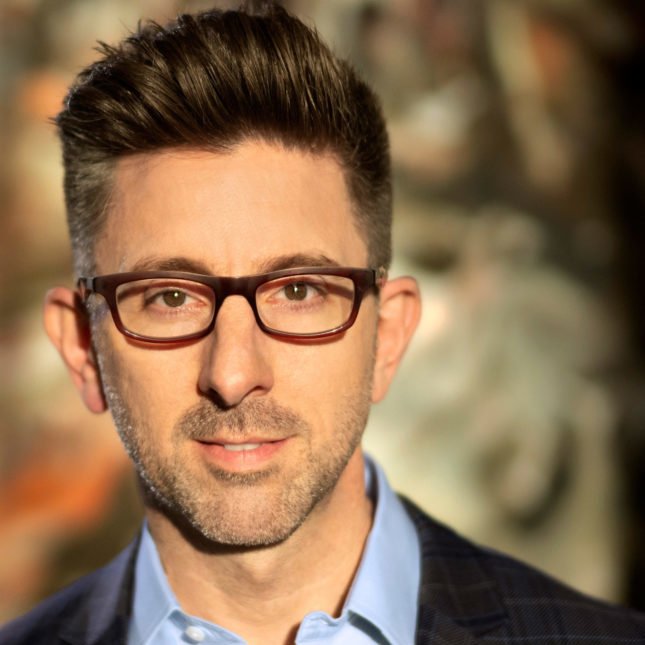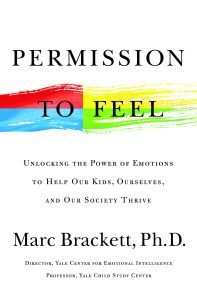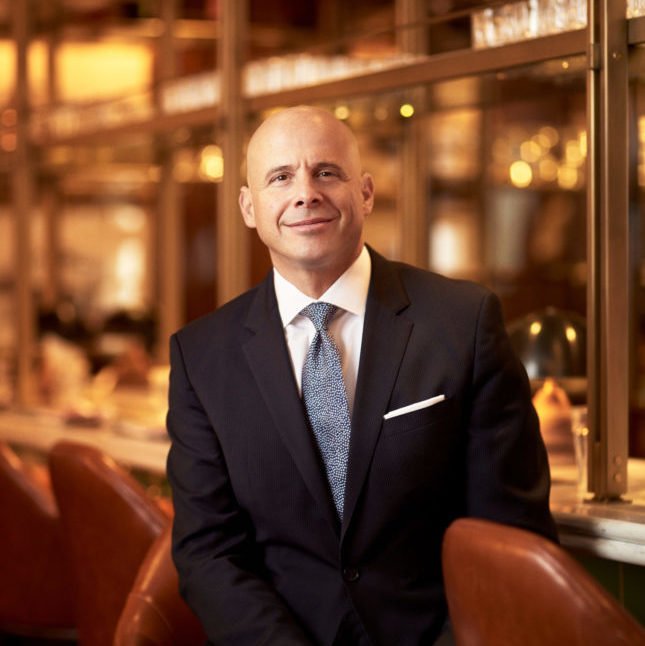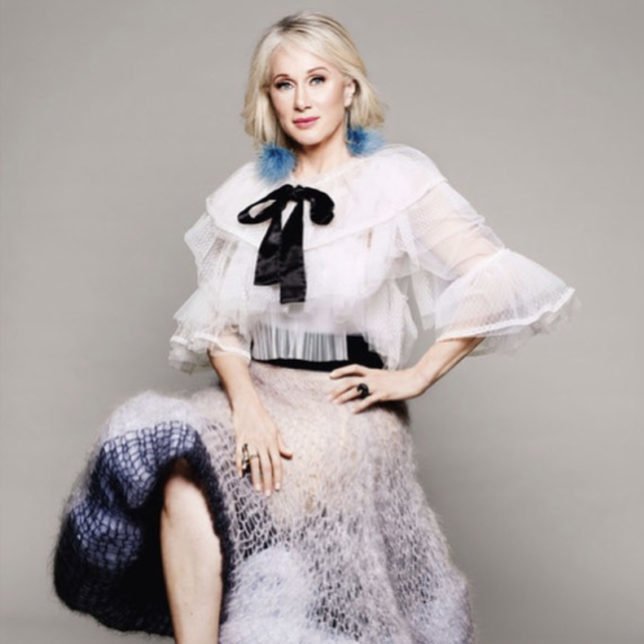As socio-political conflict becomes ever more pervasive in American life, employers are increasingly seeing the virtue of investing in emotional intelligence—the ability to recognize, understand and regulate emotions—as a way to boost both productivity and employee retention.
“All of the research is getting stronger to make the case that people with more developed EI tend to be physically and psychologically healthier, experience greater well-being, make more informed decisions and do better at work, whether it’s around creativity, performance or problem-solving,” says Marc Brackett, founding director of the Yale Center for Emotional Intelligence and a professor at the Yale School of Medicine’s Child Study Center. “The one thing that every CEO of every company should think about is, are the people managing the people in my organization emotionally intelligent and how do the people feel in my organization?”

In collaboration with senior researcher Zorana Ivcevic Pringle, Brackett recently studied 15,000 American workers, and found that “people who work for supervisors who have higher EI tend to feel 50 percent more inspired than those with a leader who is low in EI. They tend to have significantly less frustration and anger, are significantly less burnt out and have significantly higher purpose and meaning in their work.”

An expert in helping schools create healthy emotional environments, Brackett last year launched Oji Life Lab, a private company focused on training workplaces to integrate emotional intelligence into their operations. Oji’s clients include health care institutions, trucking companies and Fortune 500 corporations.

“We had a surgeon who said that after training with us, he was much more aware of the mood he was in before he entered the operating room and how that affected him,” says Brackett, whose book Permission to Feel: Unlocking the Power of Emotions to Help Our Kids, Ourselves, and Our Society Thrive will be published next month (Celadon Books). “If you’re going in to do an operation, that emotional awareness has real implications. He is so much more attuned to the facial expressions and body language of the people he’s working with.”
Run primarily as an app-based program, Oji provides action plans, training exercises and coaches, in both group and one-on-one settings.
“The intense, daylong workshop is a thing of the past,” Brackett says. “For companies, managers and leaders really need small doses of this work. What we do is short spurts of skill building, giving people opportunities to practice and having them check in with a coach around their progress.”

Brackett admits he’s encountered his share of wary executives.
“Many successful people will say, ‘I’m already successful and I didn’t need EI to get here.’ I think that’s because people don’t know what they don’t know,” he says. “When people go through our training, they’ll say, ‘I didn’t even know about these skills and strategies.’ So it’s really learning to identify the feelings and practicing specific strategies until they work. It’s important to be an emotional scientist rather than an emotional judge.”

Christian Clerc, president of worldwide hotel operations for the Four Seasons, agrees, having commissioned the just-released Harvard Business Review Analytic Services report “The EI Advantage: Driving Innovation and Business Success Through the Power of Emotional Intelligence.”
Based on a survey of 599 readers working in education, technology, manufacturing and financial services, half of whom were senior or executive management, the report includes the following observations: EI is central to building a higher level of comfort with risk-taking; employees ages 35 to 55 place a high value on finding purpose in their work; millennials are more comfortable discussing interpersonal relationships and emotions; and, despite this, few employers embed EI into job descriptions and performance reviews.
A lot of MBA programs really focus on the hard skills, and don’t promote the soft skills as much.
“The most surprising thing to me is how few companies really focus on this. Only about 20 percent of the companies surveyed had this EI engrained in their culture,” says Clerc. “A lot of MBA programs really focus on the hard skills, and don’t promote the soft skills as much.”
EI enthusiasts call that an oversight. For Clerc, it’s particularly important in the hospitality industry, where buzz words like “experiential travel” are increasingly leading management decisions.
“When we hire people, we do a behavioral-based interview. We can teach functional skills to anyone, but we can’t teach a positive attitude and caring,” says Clerc, who’s been at the Four Seasons for 20 years. “We start interviews with questions like, ‘Tell me the last time you did something special for someone and how did that make you feel?’ What’s powerful is you can’t fake an answer to this.”
Clerc says that training his employees to read guests’ moods is essential to the company’s success, and that he reminds his colleagues not to micromanage the staff members’ interactions with their guests.
Today there’s a huge shift. We want employees to be themselves, master their craft and have radical empathy.
“Once people enter our teams, what’s really important is we provide them with the right tools and training so they feel equipped to deal with whatever function they have. It used to be that in high-end hospitality, employees were encouraged to be very choreographed,” he says. “Today there’s a huge shift. We want employees to be themselves, master their craft and have radical empathy. We give people tools. We say, ‘You know the brand. Go out there and you’re empowered to do what needs to be done.’”
Some longtime executives argue that while EI skills are important to being a decent human being, they do not necessarily guarantee impressive results in business.
“Emotional intelligence is very important in life, but I wouldn’t confuse what’s important in life with the critical ingredients for success and survival in business,” says Pauline Brown, the former chairman of LVMH North America whose career has included executive positions at the Carlyle Group, Avon, Estée Lauder and Bain. She agrees that businesses that say the office is where you leave your feelings at the door have “have created very unpleasant work environments because they’re sterile and lacking in human spirit.” Still, she notes, notoriously unpleasant leaders have run some of the world’s most prosperous and dynamic companies.

“Would I have been happy working at Apple under Steve Jobs? No. Would I have been proud? Yes. In industries that have to present something that’s much more about innovation and modernization, and about appealing to people on a higher level, I think it takes a level of imagination that that sort of standard approach to developing emotional intelligence doesn’t factor,” she says. “The power of EI or the impact of it is overestimated, especially for businesses that are driven on innovation and differentiation.”
Brown, whose upcoming book Aesthetic Intelligence: How to Boost It and Use It in Business and Beyond (Harper Collins, November) grew out of a class she taught at Harvard Business School, contends that companies stressing harmony risk becoming “the antithesis of innovation.”
Brackett acknowledges that creating too “nice” of an environment is not necessarily the ideal, and that his work is less about making idyllic offices than about fostering environments with emotionally healthy practices where employees address their feelings in practical ways.
“What keeps me up at night as director of my center is wanting to know what people who work for me feel at work. Sure, a bit of pressure or anxiety keeps them on their toes,” he says. “But if you’re in a chronic state of stress or being overwhelmed, you’re not realizing your capacities. If employees feel that way, they’re probably looking for another job while they’re in the office. You can bully your way to the top, but the problem is no one will want to be around you.”






